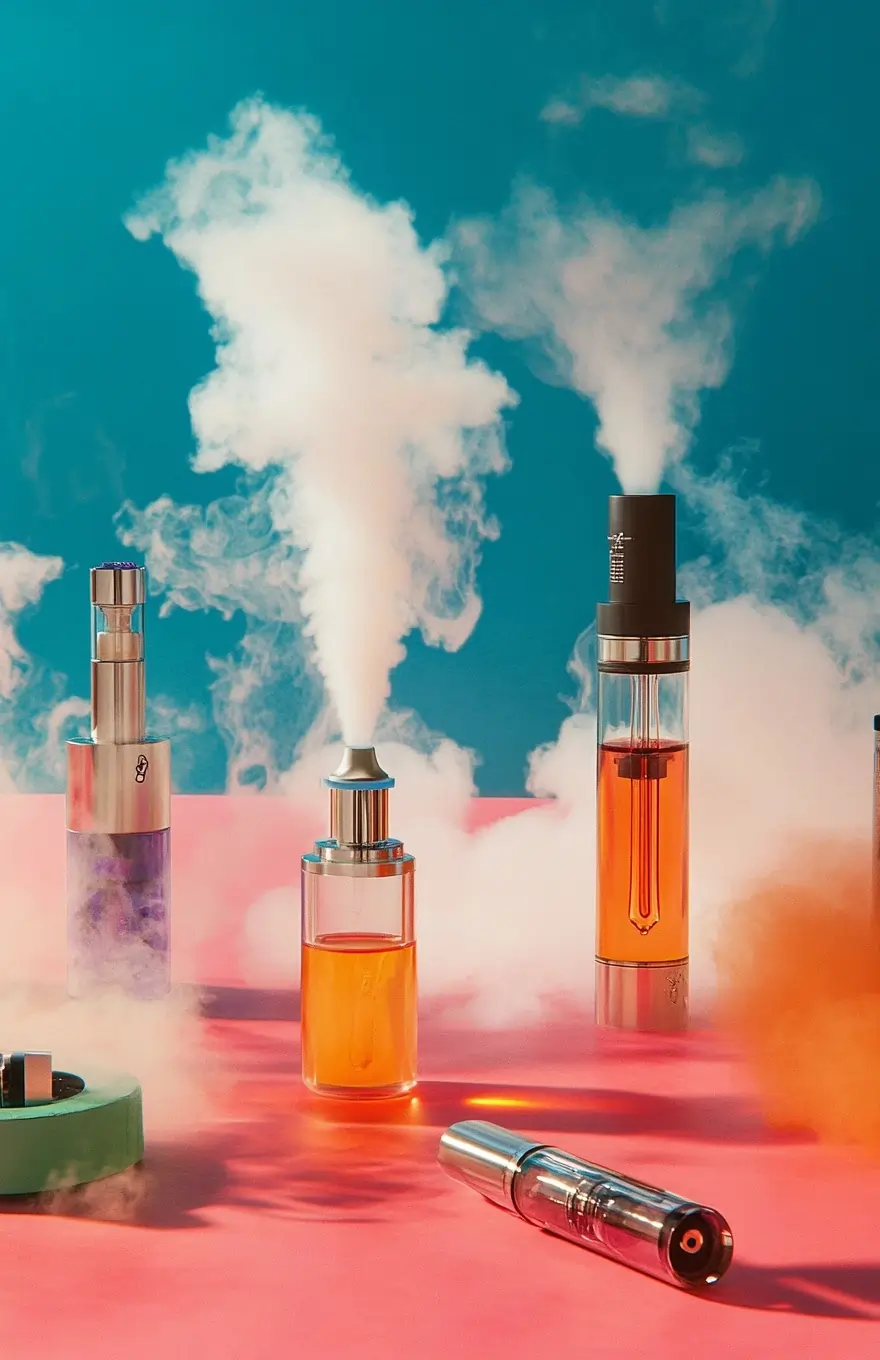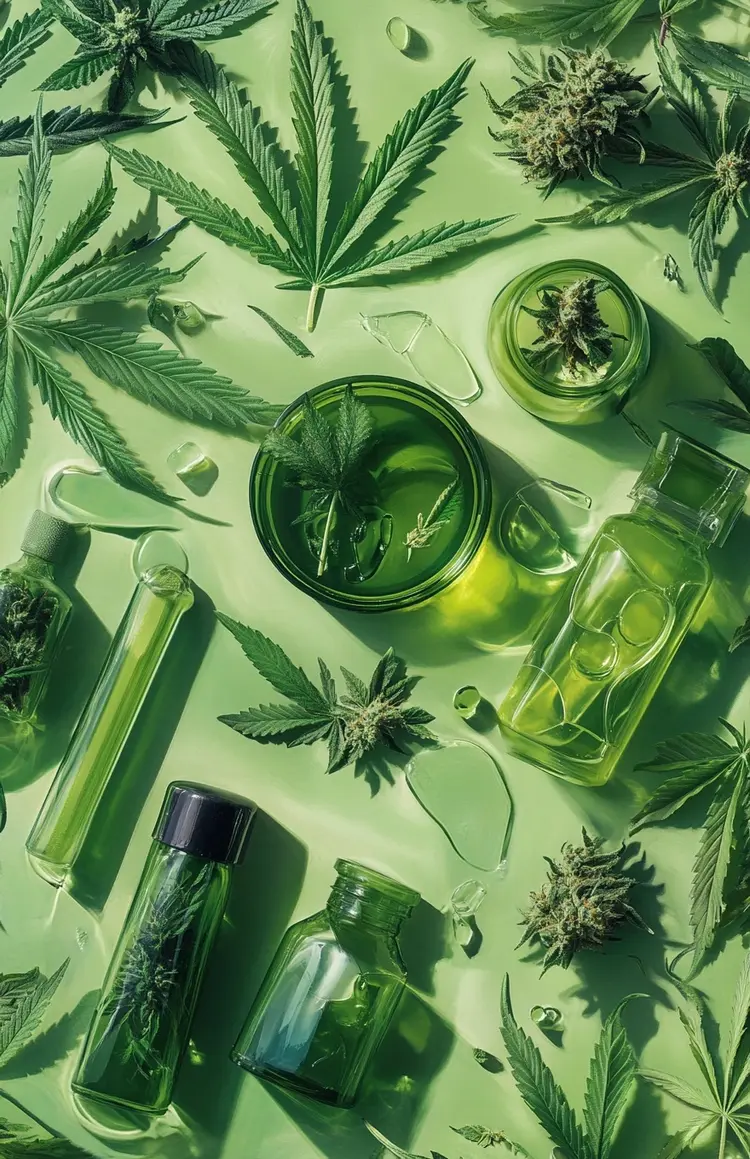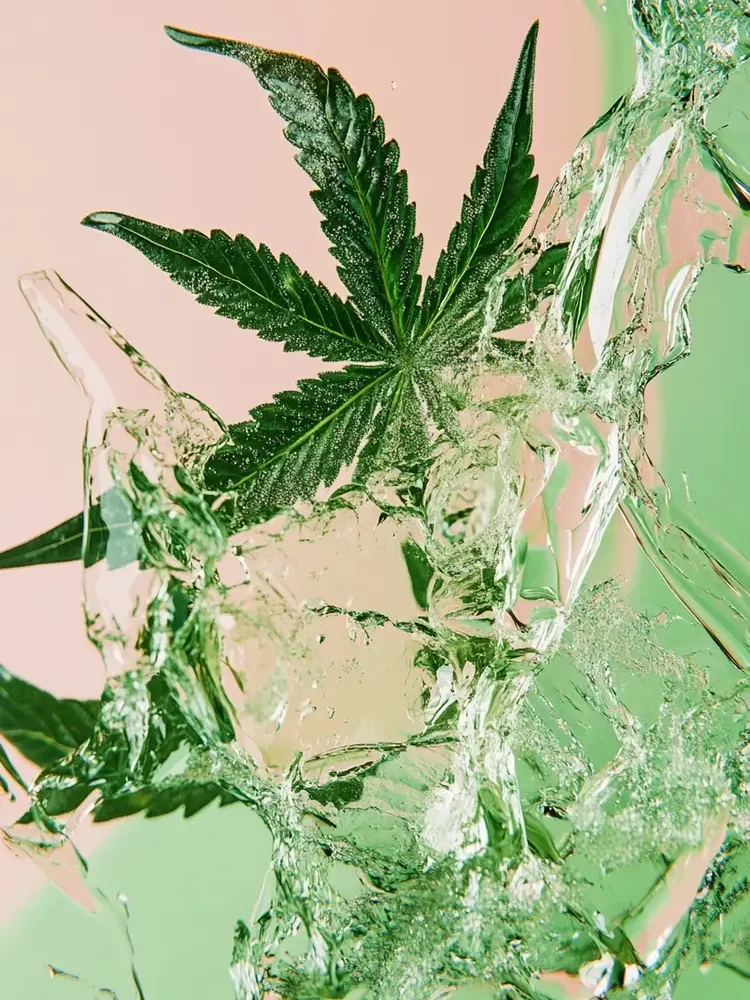

THCa vs CBD—two heavyweights in the cannabis world, each serving unique vibes. One kicks off its story in raw cannabis plants. The other? Well, it shines as a non-psychoactive compound found in wellness routines everywhere.
Are you curious about their potential benefits and how they stack up? You’re in the right place. Let’s get right into what makes THCa and CBD the stars of the cannabis plant.
THCa (tetrahydrocannabinolic acid) is the quiet genius of the cannabis plant, staying low-key until heat transforms it into THC (tetrahydrocannabinol). It’s one of the non-psychoactive cannabinoids found in fresh cannabis plants. This means it doesn’t produce psychoactive effects in its most natural form.
This flexibility makes THCa a fascinating choice for consumers. Its raw form packs potential therapeutic properties, catching the attention of cannabis enthusiasts and researchers alike. Think of THCa as the untapped power waiting to shine.
The extraction process starts with selecting premium cannabis sativa or indica strains. Then, experts use advanced cold extraction techniques to maintain THCa’s integrity. This cold method keeps THCa from converting into psychoactive THC. It guarantees a product that remains non-psychoactive while delivering all the potential benefits THCa has to offer.
THCa doesn’t pick sides. It’s found in both indica and sativa strains of the cannabis plant. Indica-heavy THCa options often lean toward relaxing vibes, while sativa strains might deliver more upbeat effects. The strain determines the experience, not the THCa itself, so THCa isn’t locked into a specific category.
THCa is 100% natural, straight from the buds of raw cannabis plants. It forms naturally as the plant grows, staying in its raw form until heat transforms it into THC. No synthetic shortcuts or lab tricks here! Just pure, unaltered goodness. If you’re looking for a cannabinoid in its most natural form, THCa is the real deal.
Dosing THCa depends on your experience and goals. Beginners should start low, around 5–10mg, to see how their body responds. More experienced cannabis consumers may opt for higher amounts but should still keep moderation in mind.
Factors like individual tolerance and the desired effects play a big role, so adjust gradually. Listen to your body, and you’ll find the sweet spot for enjoying THCa safely. For comprehensive dosing, visit our Edible Dosage Chart.

CBD (cannabidiol) is the chill sibling of THC, offering potential benefits without the buzzing sensations. This non-psychoactive compound has gained significant attention for its wellness perks.
CBD interacts with your body’s endocannabinoid system (ECS), indirectly influencing cannabinoid receptors throughout your system. This interaction leads to support for various physiological processes and internal balance. CBD is all about natural vibes and feel-good effects, whether it’s added to your daily routine or used in targeted products.
There are two common CBD extraction methods. One is CO2 extraction, known for its purity. The other is ethanol extraction, which efficiently preserves cannabinoids. These techniques pull CBD directly from hemp plants while keeping its non-psychoactive properties intact.
The result? A clean, potent compound ready for use in wellness routines, CBD products, and more. Quality extraction means quality results.
CBD’s classification depends on its source and use. Hemp-derived CBD products with less than 0.3% THC are federally legal and not classified as controlled substances. However, medical marijuana-derived CBD may still fall under stricter regulations in some states.
Thanks to the 2018 Farm Bill, hemp-derived CBD gained a legal boost, cementing its spot in the wellness world. Always check local laws to stay in the know.
CBD’s stay in your system depends on how you consume it and your body’s unique chemistry. On average, it can linger in your system for 2–5 days, but factors like dosage, metabolism, and frequency of use can extend that window. For regular consumers, traces may last a week or more.
Starting with CBD? Keep it simple. Begin with 5–10mg and see how your body responds. Adjust slowly, adding a little more if needed, until you hit that perfect spot.
Everyone’s endocannabinoid system reacts differently, so there’s no one-size-fits-all. Whether you’re using tinctures, gummies, or capsules, consistency is key for the best results.
THCa comes in various forms, giving you plenty of options to explore. Experiment with these products to find what fits your vibe:

CBD offers versatility in how you can enjoy it. From classic tinctures to innovative topicals, there’s something for everyone:
THCa shines with its promising effects and potential benefits without producing psychoactive effects. Here’s what consumers can expect:
Learn: How to Smoke Weed Like a Pro!
CBD brings a wide range of potential health benefits, making it a top pick for many consumers looking to complement their wellness routine. Here’s how CBD supports the body:
THCa is generally well-tolerated, but like any compound, it may cause mild reactions in some individuals. Always start with a low dose and listen to your body to minimize these potential side effects:
CBD is generally well-tolerated by most people, but a few mild side effects can occur depending on the individual. Start with a low dose and adjust gradually to minimize these effects:
THCa’s legal status hinges on its source and intended use. Derived from hemp with less than 0.3% THC, and it’s considered federally legal in the U.S. under the 2018 Farm Bill.
However, THCa sourced from marijuana plants or in higher concentrations may fall under controlled substance laws in certain states. Always check local regulations to make sure you’re compliant when purchasing or consuming THC gummies or THCa products.
CBD’s legal status depends on its source. Hemp-derived CBD with less than 0.3% THC is federally legal across the U.S. That’s thanks to the 2018 Farm Bill.
However, state laws may vary, with some places imposing stricter rules on its sale or use. Always verify your local regulations to make sure your CBD products meet the legal requirements in your area.
Hollyweed is all about premium, all-natural products you can rely on. Our THCa and CBD offerings come straight from U.S.-grown hemp, crafted with care to guarantee quality and purity.
Every product is vegan-friendly, free of synthetic additives, and third-party lab-tested for potency. Plus, everything we offer is federally legal, making Hollyweed a name you can trust in the cannabis industry. Check out our offerings:
CBD and THCa share a connection but bring unique qualities to the table. From their key differences to how they affect the body, there’s plenty to unpack. Let’s discuss the specifics and answer the most common questions about these powerhouse compounds.
THCa and CBD might come from the same cannabis family, but they’re far from identical. Let’s dissect their differences:
| Aspect | THCa | CBD |
| Psychoactive Effects | Non-psychoactive until heated (converts to THC) | Non-psychoactive at all times |
| Source | Found in raw cannabis plants | Found in hemp and marijuana plants |
| Potential Benefits | Neuroprotective, soothing effects, reduces swelling | Promotes relaxation, supports balance |
| Legal Status | Legal if derived from hemp (<0.3% THC) | Federally legal if hemp-derived |
No, THCa doesn’t convert into CBD. THCa transforms into THC when exposed to heat, while CBD is a separate compound entirely. Both originate from the cannabis plant but follow different chemical pathways, giving them unique properties and effects.
When it comes to impact, THCa takes the crown for potency after heating, as it transforms into psychoactive THC. CBD, on the other hand, remains non-psychoactive, offering calming and balancing effects.
The choice depends on whether you want an intense experience (THCa) or a more mellow vibe (CBD). Both have their strengths!
Both THCa and CBD show promise for easing discomfort, but they work differently. CBD interacts with the endocannabinoid system to promote balance and relaxation, while THCa in its raw form offers potential anti-inflammatory and soothing properties. Choosing between them depends on your needs and how your body responds to each cannabinoid.
CBD and THCa each have their own magic. Both cannabinoids offer exciting possibilities for enhancing your wellness routine. Think CBD’s calming benefits and THCa’s raw potential.
Whatever your vibe, Hollyweed has you covered with top-quality, U.S.-grown hemp products that deliver purity, potency, and transparency. Ready to explore? Enter the world of THCa and CBD with Hollyweed by your side!